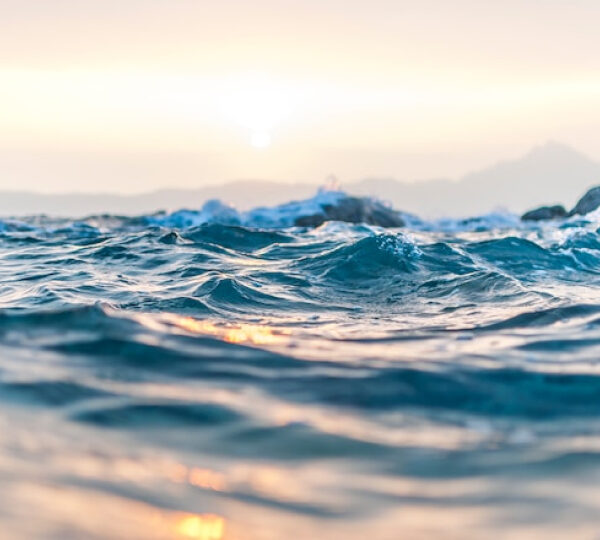
Why Your Brain’s Favorite Color Is the Ocean
- Author:
- Christopher Truffa
- Date:
- October 7 2025
On a quiet morning, the ocean is more than just blue; it is a pulse, a breath, a gentle hum of serenity that seems to resonate in our minds before our eyes. That shade — somewhere between cyan and cobalt, hovering near 480 nanometers, is not just beautiful; it’s biologically significant, tuned to the eye’s way of finding calm.
Our eyes harbor light-sensitive melanopsin-containing retinal ganglion cells, that respond most strongly to this wavelength, sending signals to the brain’s internal clock to regulate circadian rhythm and mood. In other words, the ocean’s hue speaks our biological language.
And it doesn’t just whisper, it soothes. In a controlled experiment, participants exposed to blue light returned to baseline stress levels three times faster than those under white light study here. Other research shows that living near “blue spaces”, coastlines, rivers, even fountains, is linked to lower anxiety, slower heart rates, and better overall mental health.
Finding My Own Light
I thought about this one afternoon in Portugal, when I boarded a boat to a place quite literally called Desert Island. The blue light began its transformation the moment we left the marina. It shifted in layers, like a prism in motion, as we cut across the lagoon in a bright-yellow speed dinghy. First, the water shimmered electric, a quicksilver blue catching every sunbeam. Then, as we hiked across the dunes to reach the far, forgotten stretch of sand, the color deepened, softened. The world quieted to a palette of pale sky and endless tide.
By the time I reached the edge of the water, far from any other soul, the light had turned into something I could feel more than see, a vibration, a frequency I seemed to tune into with my entire body. I sat there on the dune, toes in the wet sand, and let the blue do what it has always done: reset something inside me. The stress I’d been carrying seemed to dissolve in those slow waves, as if the ocean had held calm on reserve for me all along.
The “Blue Mind”
Marine biologist Wallace J. Nichols calls this our “blue mind,” a meditative state of calm and contentment evoked simply by water’s presence. That afternoon on Desert Island was my own blue-mind moment, but research shows it isn’t rare: across cultures, time near water reliably lifts mood, increases feelings of awe, and restores attention.
Yet for all its majesty, the story of ocean blue works best when spoken softly. Some popular claims that blue light directly suppresses cortisol or triggers the brain’s reward center are more poetry than proven fact. Research on blue light and cortisol is mixed, with some studies showing stimulation and others showing calm. But perhaps that is the point: when you stare at the water and feel your shoulders drop, it may not matter whether it’s neurochemistry or something more ineffable at work.
The Warm Hug of the Universe
That is the quiet miracle of the ocean: it doesn’t need to prove its medicine to heal. Its wavelength tunes to our biology, yes, but also to our longing. The ocean is a reset button we carry in our sight and our memory, dissolving noise, softening edges, and returning us to ourselves.
So perhaps it is fair to say that your brain does have a favorite color and it is the ocean. The next time you find yourself standing on a shoreline, let the light do what it has been doing for millennia: loosen your grip on the day, slow your breath, and remind you of the vast, luminous calm that is still available, waiting just beyond the waves.
Are you ready to take the journey?
Take the journey and find your nature guide.


